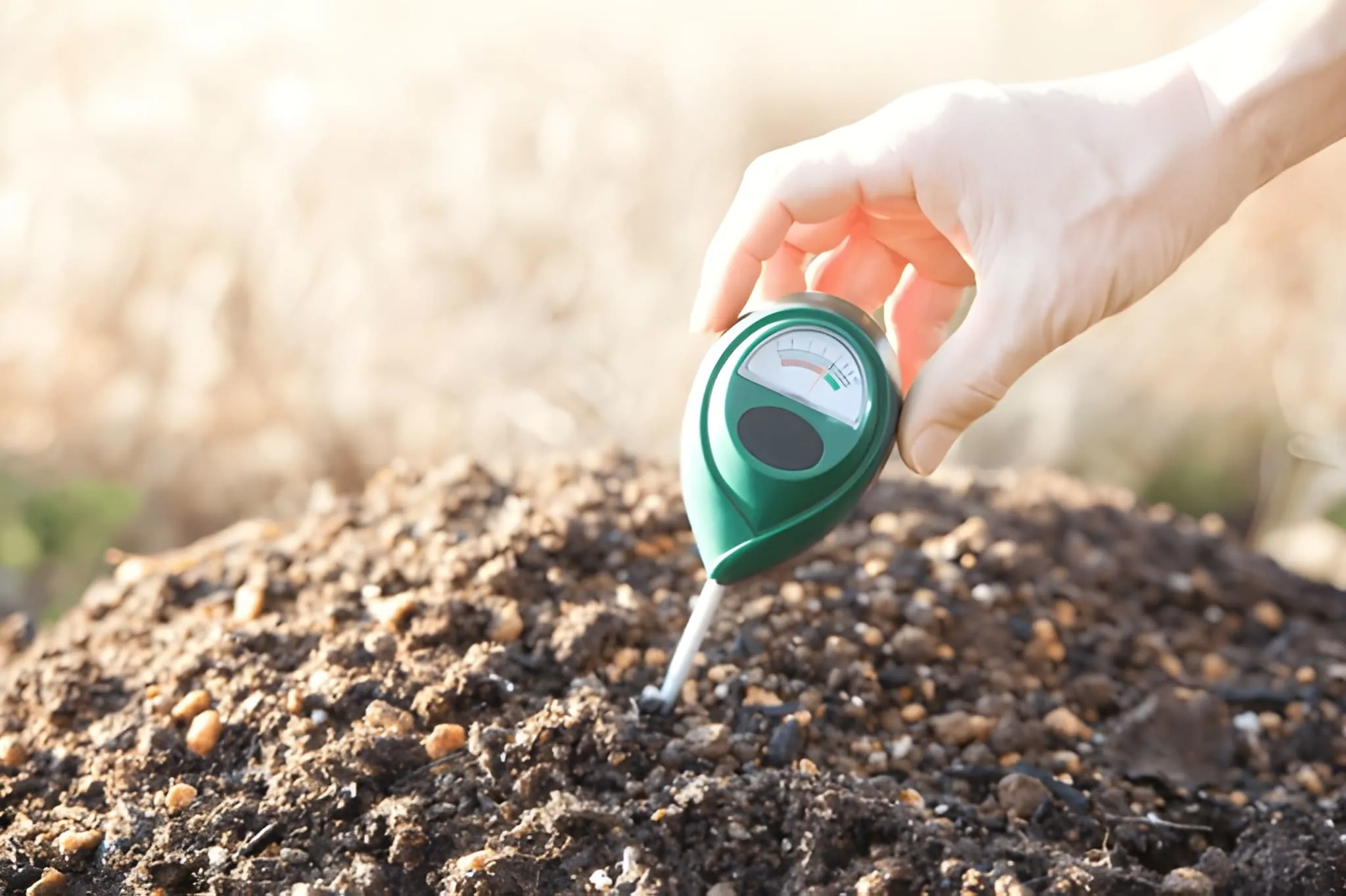This blog covers how accurate different soil and pH testers are, exploring soil testing kits, digital and analog tools, and what to consider when choosing a reliable dirt testing kit or soil acidity tester.
Healthy soil is the foundation of thriving plants, whether you’re tending a small home garden or managing acres of farmland. The right soil balance determines how well plants absorb nutrients, how fast they grow, and how strong they become.
To make sense of soil health, many gardeners and professionals turn to a soil and pH tester. But how reliable are these devices and kits? Can a simple soil testing kit give you enough accuracy to guide decisions, or do you need professional-grade tools? Let’s break it down.
Why Soil Testing Matters
Soil is more than just dirt. It’s a living system that supplies plants with essential nutrients, water, and a stable foundation. Testing your soil helps identify:
- The nutrient levels available to plants
- The presence of deficiencies or imbalances
- The acidity or alkalinity of the soil
Even small shifts in pH Testers can affect nutrient absorption. For instance, overly acidic soil might block nutrients that plants need to grow. Without testing, you’re guessing, and guesswork often results in poor yields. A reliable soil testing kit or soil and pH tester gives you clarity and control.
Types of Soil and pH Testers
There are several tools available for checking soil quality, each with its own strengths.
1. Basic Soil Testing Kit
These chemical-based kits are popular for their affordability and ease of use. They usually come with capsules or solutions that change color when mixed with soil extracts.
2. Digital Soil and pH Tester
These are electronic devices that provide quick, on-the-spot readings of soil pH and sometimes moisture, sunlight, or temperature. They’re convenient but often require calibration for best results.
3. Soil Acidity Tester
This tool focuses specifically on measuring pH levels. For growers whose main concern is acidity or alkalinity, a soil acidity tester is straightforward and dependable.
4. DIY Dirt Testing Kit
Perfect for hobby gardeners, these kits provide a simple way to test basic soil properties. While they don’t match lab-grade accuracy, they’re affordable and accessible for everyday use.
Together, these tools make it possible for both beginners and professionals to understand soil conditions without sending samples to a lab every time.
How Accurate Are They Really?
The accuracy of soil testers depends on the type of kit, the quality of the device, and how well instructions are followed.
- Chemical Soil Testing Kit
These can be fairly accurate when handled properly, but results may vary if the soil sample isn’t prepared correctly or if the user misreads the color changes.
- Digital Soil and pH Tester
Convenient and quick, but calibration is critical. Without proper calibration, readings may drift and provide misleading data.
- Soil Acidity Tester
Reliable for pH readings, but they only provide a narrow view. You’ll still need additional tools or kits for nutrients and other properties.
- Dirt Testing Kit
Easy to use but generally less precise. These are best for small gardens or for those who want a broad idea of soil health without needing lab-level accuracy.
Other factors also influence accuracy:
- Soil must be sampled from multiple locations to get a fair average.
- Moisture content affects digital readings.
- Proper cleaning and storage of the tester extend its accuracy over time.
When used carefully, even a basic soil and pH tester can provide useful insights that guide fertilization, watering, and planting decisions.
Tips to Improve Accuracy
If you want the best results from your soil testing kit or digital tester, here are a few tips:
- Take samples from different parts of your garden or field and mix them for a balanced reading.
- Always follow the kit or device instructions carefully.
- Calibrate digital testers regularly to maintain precision.
- Invest in high-quality tools instead of the cheapest option, as accuracy often depends on build quality.
With these practices, even an affordable soil and pH tester can deliver reliable guidance.
Choosing the Right Tester for Your Needs
The right choice depends on what you want to achieve:
- For casual gardeners who want quick insights, a dirt testing kit is more than enough.
- For farmers or researchers who need accurate readings across multiple parameters, a digital soil and pH tester is a better investment.
- For growers mainly concerned with pH balance, a soil acidity tester is straightforward and cost-effective.
Each tool serves a different purpose, so understanding your goals helps you pick the right one.
Test Smarter, Grow Better
Soil health isn’t guesswork; it’s science. A reliable soil testing kit or advanced soil and pH tester can give you accurate data to guide planting decisions, improve yields, and save money on unnecessary fertilizers.
At Lab Chemicals, we provide easy-to-use, dependable soil testing kits that deliver consistent results for gardeners, farmers, and researchers. Backed by quality you can trust, our kits make it simple to understand your soil and grow better.

